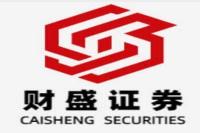SK Group's Restructuring: A Deep Dive into the 20% Executive Layoff and its Ripple Effects
Meta Description: SK Group's recent 20% executive layoff – analysis of the reasons, impacts on the South Korean economy, employee morale, future implications, and lessons learned for other businesses. Explore the intricacies of corporate restructuring and its human cost. #SKGroup #Layoffs #CorporateRestructuring #SouthKorea #BusinessStrategy #ExecutiveCompensation #EmployeeMorale
This isn't just another story about corporate downsizing. This is about SK Group, a South Korean behemoth, facing the harsh realities of a shifting global economic landscape. Their recent decision to axe 20% of their executive ranks sent shockwaves through the business world, sparking heated debates about corporate responsibility, leadership strategies, and the very nature of success in the 21st century. Let's be frank: it's a gut-wrenching move, impacting real lives and careers. But beneath the surface of this dramatic headline, lies a complex tapestry of factors – strategic shifts, economic pressures, and the ongoing quest for efficiency and profitability. We're peeling back the layers to understand not just what happened, but why, and what this seismic event means for SK Group, its employees, and the broader South Korean economy. This isn't just a numbers game; it's a human story, full of ambition, uncertainty, and the relentless pressure to adapt in a hyper-competitive world. Prepare to be immersed in a detailed analysis, brimming with insights gleaned from years of following the intricacies of South Korean business and global economic trends. We'll explore the potential ramifications, weigh the pros and cons, and offer a forward-looking perspective on what SK Group's bold move signifies for the future of corporate restructuring. Get ready to dive deep into the heart of this fascinating and significant business development.
SK Group Executive Layoffs: A Strategic Analysis
The announcement of a 20% reduction in SK Group's executive workforce sent ripples across the business world. It wasn't a knee-jerk reaction; rather, it appears to be a strategic move driven by a confluence of factors. Let's break down the key elements:
-
Global Economic Uncertainty: The global economy is, let's face it, a rollercoaster. Fluctuations in oil prices, geopolitical tensions (think the ongoing Russia-Ukraine conflict), and supply chain disruptions have created a volatile environment. Companies, even giants like SK Group, need to adapt and streamline operations to withstand these external pressures. This isn't just about cutting costs; it's about building resilience.
-
Increased Competition: SK Group operates in highly competitive sectors. From energy and telecommunications to chemicals and biotechnology, they face stiff competition from both domestic and international players. To maintain a competitive edge, they need to optimize efficiency and invest strategically in areas with the greatest growth potential. This often involves tough decisions, including personnel reductions.
-
Shifting Business Models: The world is changing at lightning speed. Digital transformation, technological advancements, and evolving consumer preferences are forcing companies to rethink their business models. This restructuring might signal SK Group's commitment to embracing new technologies and adapting to the digital age – a process that often requires a leaner, more agile organization.
-
Improving Profitability: The bottom line is always a major driver. By streamlining its executive structure, SK Group aims to reduce overhead costs, improve profitability, and ultimately increase shareholder value. This isn't a decision made lightly; it's a calculated move aimed at long-term sustainability.
The Human Cost: While the strategic rationale is clear, we can't ignore the human cost. Layoffs impact individuals, families, and entire communities. It's vital for SK Group to manage this transition with empathy and support, providing adequate severance packages, outplacement services, and resources for affected employees. Failing to do so could damage the company's reputation and negatively impact employee morale across the board.
The Impact on the South Korean Economy
SK Group is a cornerstone of the South Korean economy, playing a significant role in several key sectors. This restructuring will undoubtedly have ripple effects throughout the nation's business landscape. The potential impacts include:
-
Reduced Consumer Confidence: Layoffs can trigger uncertainty and reduce consumer spending, potentially slowing down economic growth.
-
Impact on Related Industries: SK Group's operations are intertwined with numerous other businesses. The restructuring could impact suppliers, partners, and other companies along the value chain.
-
Government Response: The South Korean government may need to intervene to mitigate the negative economic consequences, perhaps through job creation programs or other stimulus measures.
-
Talent Drain: The loss of experienced executives could negatively impact SK Group's innovation and competitiveness in the long run.
Addressing the Future: Lessons Learned and Moving Forward
What can we learn from SK Group's bold move? Several key takeaways emerge:
-
Proactive Restructuring: Companies shouldn't wait until facing a crisis to undertake restructuring. Proactive adjustments are crucial for long-term success.
-
Strategic Prioritization: Investing in key growth areas and streamlining less profitable ventures is essential for maintaining competitiveness.
-
Employee Communication: Open and transparent communication with employees during restructuring is paramount for maintaining morale and mitigating negative consequences.
-
Focus on Sustainability: Long-term sustainability should guide corporate decisions, balancing profitability with social and environmental responsibility.
Frequently Asked Questions (FAQs)
Q1: Will this affect SK Group's overall business operations?
A1: While the layoff primarily targets executives, it's likely to indirectly impact other areas. Operational changes and strategic shifts might follow.
Q2: What kind of support will laid-off executives receive?
A2: SK Group hasn't fully detailed its support package, but it's expected to include severance pay, outplacement services, and career counseling.
Q3: Is this a sign of broader economic trouble in South Korea?
A3: While it's a significant event, it's not necessarily indicative of widespread economic distress. However, it reflects the need for adaptation in a challenging global environment.
Q4: Could this lead to further layoffs within SK Group?
A4: It's possible. The restructuring could lead to further adjustments depending on the success of the implemented strategies.
Q5: How will this impact SK Group's reputation?
A5: This depends on how SK Group manages the layoff process. Transparent communication and support for affected employees can mitigate negative reputational impacts.
Q6: What are other companies learning from SK Group's actions?
A6: This situation underscores the need for proactive strategic planning, efficient resource allocation, and compassionate handling of workforce reductions.
Conclusion
SK Group's 20% executive layoff is a pivotal moment, showcasing the challenges and complexities of operating in today's dynamic global economy. While the decision has a significant human cost, the strategic rationale behind it is understandable. The long-term success of this restructuring will depend on several factors, including how effectively SK Group manages the transition, adapts its business model, and supports its employees. This event serves as a stark reminder that even the largest corporations need to be agile, innovative, and prepared to make difficult choices to ensure their long-term survival and prosperity. The ripple effects of this decision will continue to be felt for some time, prompting a crucial conversation about the evolving relationship between corporations, employees, and the broader socio-economic landscape.



